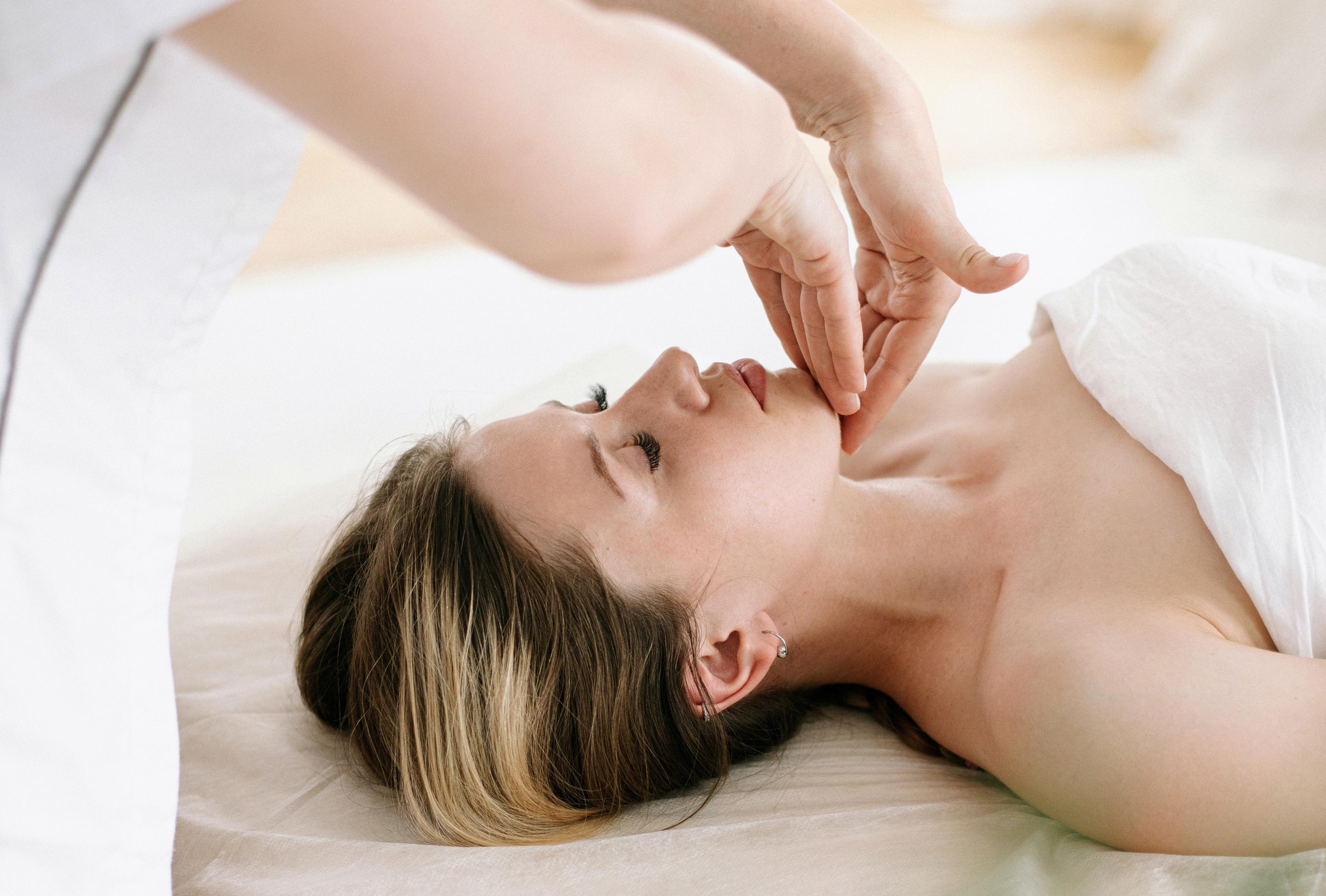RELAXED JAW - THE BEST TIPS AND TRICKS
Stress begleitet häufig unseren Alltag. Stress im Job, in der Familie und sogar unsere Freizeit ist oft nicht so stressfrei, wie wir uns das wünschen würden.
Überall sind die Erwartungen, die an uns gestellt werden hoch und wir möchten allem gerecht werden – nur uns selbst verlieren wir dabei oft aus den Augen. Da heißt es dann: Zähne zusammenbeißen und durch.
CONSEQUENCES
One of the many consequences is obvious – tense jaw muscles. This results in various problems:
- Teeth grinding (broxism)
- One-sided chewing
- Earache
- Headache
- Toothache
- Tinnitus
- Restrictions when opening the mouth
- Tension in the neck and shoulder area
- Concentration problems
Tense jaw muscles are an alarm signal from the body and should not be taken lightly. The process is usually gradual and is only noticed by those affected when more severe discomfort occurs.
Some symptoms, such as teeth grinding, occur mainly during sleep and are thus not noticed at all by those affected. The result: people wake up with unexplained headaches or supposed earaches.
CAUSES
In any case, it is important to get to the bottom of the causes. In many cases, the dentist is a good contact person. He can get to the bottom of possible causes in the truest sense of the word. But diseases in the ear, nose and throat area or completely different illnesses can also be triggers for tension in the jaw. On the one hand, medical reasons come into question, such as, among others:
- Misalignment of the jaw
- Joint wear and arthrosis
- Tooth crowns that are too high
- Inflammation of the sinuses or maxillary sinuses
TREATMENT
In many cases, however, the causes are stress-related. Here are some ways to counteract the tension. These include:
- Relaxation and breathing exercises
- Massage
- Acupressure
- Positive attitude to life
- Stress reduction through good time management
- In tense situations, we tend to unconsciously clench our teeth. Over
- time, this leads to tension not only in the jaw, but also in the neck and shoulder area.
This can be counteracted with regular relaxation and breathing exercises to minimize tension.
The jaw is closely connected to the neck, the tongue and, of course, the teeth. So relaxing the jaw always means relaxing the entire region, as one intertwines with the other.
Here are a few simple tips and tricks you can use to effectively relax the area:
MASSAGE
Muscle tension can be relieved well with massage. The masseter muscle is the largest chewing muscle and runs from the cheekbone to the jawbone. If tension or small nodules in the muscles, the so-called trigger points, occur here, this can have unpleasant consequences.
To massage the masseter, make light circular movements with the index, middle and ring fingers at the side of the corner of the mouth below the cheekbone. You can enhance the soothing effect with light pressure and opening and closing the mouth.
LOOSEN THE TEMPOROMANDIBULAR JOINT
The temporomandibular joint is located approximately at the level of the earlobes. If you open and close your mouth slightly, you can feel the hollow of the temporomandibular joint with your ring fingers. Now, with your mouth slightly open, tap the area of the joint with your middle fingers. The pressure should vary in intensity.
Then apply pressure to the socket of the temporomandibular joint with your index and middle fingers for about 20 seconds.
You can also relax the jaw muscles by opening and closing your mouth several times. Moving the jaw sideways with the mouth closed also relieves tension. Simultaneously applying light pressure to the hollow in the respective joint can further enhance the effect.
TONGUE MASSAGE
The tongue can also help to relax the jaw. To do this, slowly run your tongue along the teeth, starting with the molars. This includes the front and the back of the teeth.
Light pressure of the tongue against the upper jaw and circular movements of the tongue in the oral cavity also relax the muscles.
If you have jaw problems, it is often worthwhile to have a check-up by a competent orthodontist. From our own experience (Nico), we recommend Dr. Mislik in Zurich from the practice “We love Smiles”. She offers all relevant jaw treatments and is also specialized in Invisalign.
CONTACT
We Love Smiles Orthodontics Zurich AG
Gottfried-Keller-Strasse 7
8001 Zurich
Phone + 41 (0)44 562 20 20
info@kieferorthopaedie-zuerich.ch
WARM OR COLD TREATMENT
Depending on whether the cause of the tension is inflammation or overuse, the discomfort can be relieved with heat or cool pads.
While cold often provides relief for inflammation, heat is the remedy of choice for overuse.
When eating, you should make sure that you do not choose extremely hard or chewy foods, so as not to overload the jaw muscles by excessive chewing.
Regular exercise can also help to relax not only the jaw muscles.
STERSSFACTOR
It is well known that stress leads to muscle tension, so it is important to make everyday life as stress-free as possible. By doing a few simple things, you can help lower your stress level significantly.
- First things first. Good planning, preferably with the help of a to-do list, gives you an overview of the things that absolutely have to be done. That way, you don’t get bogged down so easily in trivialities.
- Take short breaks on a regular basis. Dream yourself away to your favorite place or just enjoy the peace and quiet.
- Also be happy about small successes.
- A walk in the fresh air clears your head.
- Set yourself achievable goals.
- Get enough sleep. Sleeping reduces stress, helps you regenerate and keeps you fit.
Tight jaw muscles are not a matter of fate; it is up to you to do something about it. With a healthy lifestyle, a positive attitude, sufficient rest and regular exercises, your tensions will dissolve permanently and you will be able to face everyday life in a relaxed manner.

